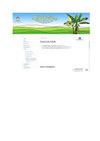绵羊红细胞抗原选择的尼日利亚地方鸡系对新城疫病疫苗的抗体反应评估
IF 0.2
Q4 AGRONOMY
引用次数: 1
摘要
本研究旨在评估两个尼日利亚土著鸡系中针对新城疫病毒疫苗的血清血凝抑制抗体滴度,这两个鸡系被选为绵羊红细胞抗原。使用了一百只尼日利亚土鸡。这些鸡属于已分化为高抗体滴度鸡系(HATC)和低抗体滴度鸡株(LATC)的第四代鸡群。鸡在六周大时接种新冠病毒疫苗,而在给药后七天从每只鸡身上采集血样。通过血凝抑制试验测定雏鸡的抗体滴度,并使用SAS 9.2版本对收集的数据进行方差分析。研究发现,性别对抗体滴度值没有显著影响(p>0.05),而遗传系和通过遗传系相互作用的性别对抗体效价值有显著影响。LATC雌雏鸡的ND抗体滴度(4.21+0.47)显著低于HATC雌雏鸡(8.04+2.02)。此外,LATC雄雏鸡的ND滴度(4.26+1.20)明显低于HATC雄雏鸡(7.25+0.48)。同时,LATC雌、雄雏鸡之间无显著差异。基于在遗传系之间观察到的ND抗体滴度的差异,应该强调沿着ND抗性发展HATC和LATC的政策。因此,我们建议在考虑对家禽业造成重大损失的ND感染时,应优先考虑HATC而非LATC。本文章由计算机程序翻译,如有差异,请以英文原文为准。
Assessment of antibody responses to Newcastle disease vaccination in Nigerian indigenous chicken lines selected for sheep red blood cell antigen
This research was carried out to evaluate serum haemagglutination inhibition antibody titres to a Newcastle disease virus vaccine in two Nigerian indigenous chicken lines selected for sheep red blood cell antigens. One hundred Nigerian indigenous chickens were used. These chickens belonged to the fourth generation of flock that had been divergently distinguished into a high antibody titre chicken line (HATC) and a low antibody titre chicken line (LATC). Chicks were given a NDV vaccine at six weeks of age, while blood samples were collected from each chick at seven days post-administration. The antibody titres of chicks were determined through a haemagglutination inhibition test and the data collected were subjected to analysis of variance using SAS 9.2 version. It was found that sex had no significant effect on the antibody titre values (p>0.05), while the genetic line and sex by genetic line interaction had significant effects on the antibody titre values. Female chicks of LATC recorded a significantly lower ND antibody titre (4.21+0.47) compared to HATC females (8.04+2.02). Also, male chicks of LATC recorded a significantly lower ND antibody titre (4.26+1.20) compared to HATC males (7.25+0.48). Meanwhile, there was no significant difference between male and female chicks of LATC as well as between male and female chicks of HATC. Based on the differences observed in ND antibody titres between the genetic lines, emphasis should be placed on policies to develop HATC and LATC along ND resistance. Therefore, we recommend that when considering ND infection which exerts substantial losses to the poultry industry, HATC should be favoured over LATC.
求助全文
通过发布文献求助,成功后即可免费获取论文全文。
去求助
来源期刊

Tropical Agriculture
Social Sciences-Development
CiteScore
0.50
自引率
0.00%
发文量
0
期刊介绍:
The overarching aim of Tropical Agriculture is to contribute to the process of agricultural development in tropical agro-ecosystems, through publication of papers in the area of agricultural science and technology. The specific objectives of the Journal are: -To address the practical aspects of sustainable tropical agriculture production, improvement, protection and commodity utilization, worldwide. -To foster the application of science and technology to understanding and removal of constraints to tropical agricultural productivity. -To publish the results of original research which make significant contributions to knowledge on the practice of sustainable and productive tropical agriculture. The Journal publishes papers in the following areas of tropical agriculture: -Soil Science and Technology -Environmental Science and Technology -Crop Science and Technology -Livestock Science and Technology as well as: Food and Nutrition Policy, Post-Harvest Technology, Agricultural Economics and Extension, Agribusiness
 求助内容:
求助内容: 应助结果提醒方式:
应助结果提醒方式:


